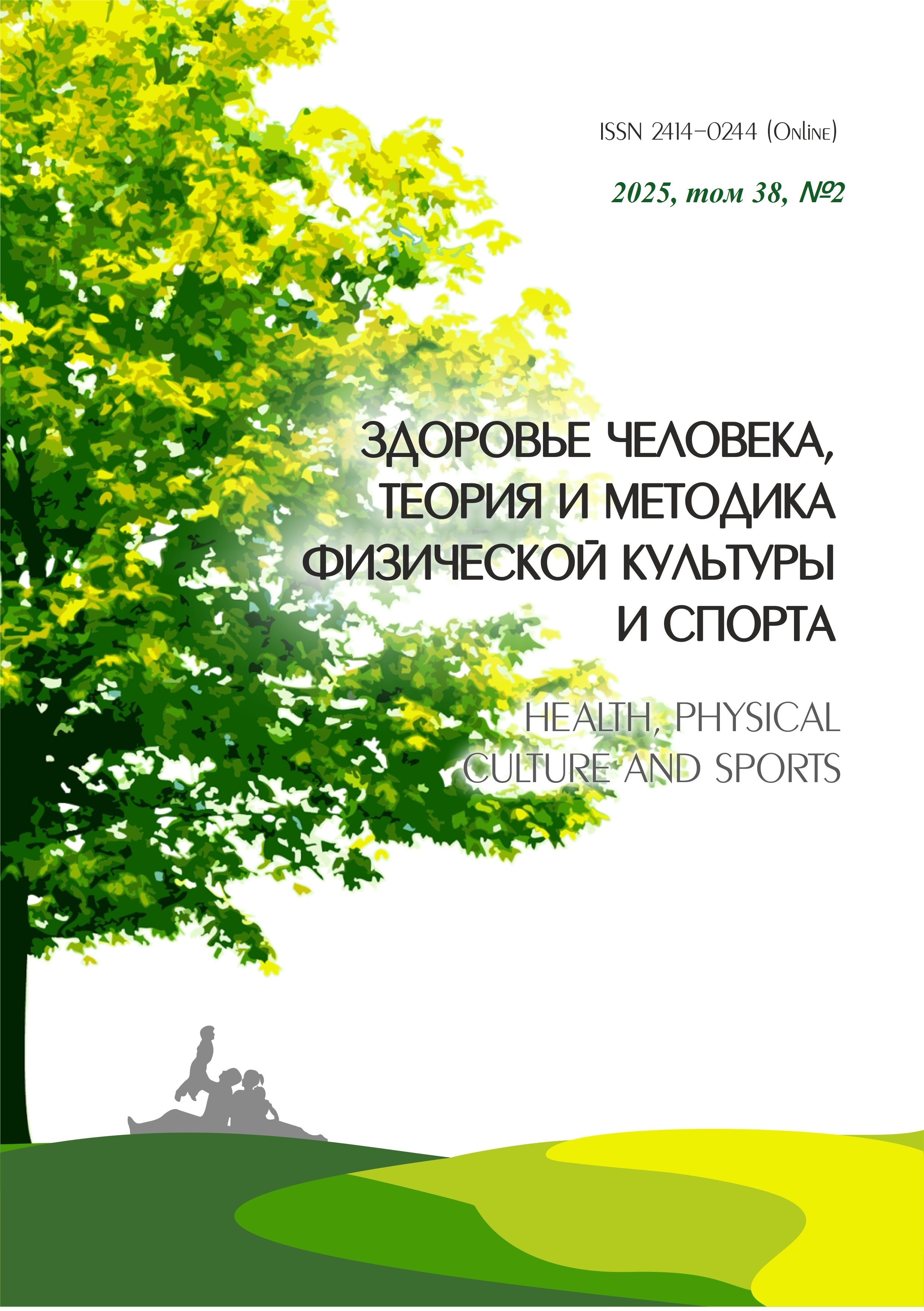РОЛЬ ФИЗИЧЕСКОЙ КУЛЬТУРЫ И СПОРТА В ПОДГОТОВКЕ БУДУЩИХ ВРАЧЕЙ ПЕДИАТРОВ
Аннотация
В научной статье поднимается актуальный вопрос об значимости физической культуры и спорта для современной молодежи, проходящей обучение в медицинском Вузе. Основным объектом изучения являлись студенты педиатры 1-2 курсов Приволжского Исследовательского Медицинского Университета. Целью исследования являлось выявление основных мотивов выбора по профессии «Педиатрия» у студентов медиков, какими профессиональными качествами личности и знаниями в области физической культуры и спорта должен владеть современный врач педиатр, по мнению студентов медиков, для успешной реализации дальнейшей профессии. В исследовании применялся метод социологического опроса в виде анкетирования и метод индивидуального интервьюирования. Всего в педагогическом исследовании участвовало 157 студентов, обучающихся по специальности «Педиатрия». В результате глубокого анализа анкет было выявлено, какие профессиональные компетенции может сформировать дисциплина «Физическая культура и спорт» у будущих педиатров.
Данная работа может быть полезна преподавателям дисциплин «Физическая культура», «Физическое воспитание», осуществляемым работу в высшей медицинской школе, а также методистам и завучам по учебной работе на профильных кафедрах, которые являются разработчиками и составителями новых учебных программ в области Российского Здравоохранения.
Скачивания
Литература
Brusov M.A., Peshkova N.V. (2024) Structure and content of vocational-oriented technology for the formation of psychophysical readiness of medical students in the process of physical education at the university [Northern region: science, education, culture] Vol 25. No 3. Pp. 68-73. (in Russian).
Volov V.T., Serper S.A. (2024) Opportunities for physical culture and sports in the development of a value attitude to the health of medical students [Bulletin of the Tver State University. Series: Pedagogy and Psychology] No 2. Pp. 126-137. (in Russian).
Kalitov A.B. (2023) The role of physical culture in the educational process of medical students. In the collection: Student sports in the modern world. Collection of materials of the All-Russian Scientific and Practical Conference with international participation. St. Petersburg. Pp. 377-381. (in Russian).
Kiseliv Y.V., Bystritskaya E.V., Grigorieva E.L. (2020) To the problem of the development of the information and communal component of health culture among students of a medical university. [ Azimuth of scientific research: pedagogy and psychology] Vol. 9. No. 4 (33). Pp. 149-154. (in Russian).
Lukavenko A.V., Basinsky A.M., Dryn N.V. (2023) Features of correction and optimization of physical exertion in the educational process of physical training at the university [Problems of Modern Pedagogical Education] No 80-1. Pp. 199-201. (in Russian).
Maltsev D.N., Kochetkova O.A., Maltseva I.V. (2021) The use of ontogenetic gymnastics to form professional competencies among students of the pediatric faculty [Uchenye zapiski universiteta imeni P.F. Lesgafta] No 11. (201). Pp. 269-274. (in Russian).
Mitenkova L.V., Khalilova L.I., Sklyarova I.V., Volkova L.M. (2020) Aspects of the formation of professional and applied physical training of students of medical universities [Uchenye zapiski universiteta imeni P.F. Lesgafta] No 2. (180). Pp. 264-268. (in Russian).
Platonova Y.V. (2018) Formation of the physical culture of the personality of students, taking into account the conditions of their future professional activity (on the example of the profession of a doctor) [Physical Culture. Sport. Tourism. Motor Recreation] Vol 3. No 3. Pp. 97-101. (in Russian).
Rozvodovskaya N.V., Rozvodovsky R.O., Zasypkin M.V., Volkova T.S. (2020) Organization of physical education for students with impaired health. In the collection: modern aspects of training the professional activities of a sports manager, materials of the IV All-Russian Scientific and Practical Conference with international participation. Ministry of Sports of the Russian Federation FSBEI HE "Moscow State Academy of Physical Culture". Pp. 190-196. (in Russian).
Rosovskaya O.A., Kaerova E.V. (2016) Relevance of physical culture for students, future pediatricians. In the collection: Modern problems of physical culture and sports. materials of the XX All-Russian Scientific and Practical Conference. edited by E. A. Vetoshkina. Pp. 182-185. (in Russian).
Skiba I.A., Konovalov I.E. (2022) Improvement of software and content support for vocational and applied physical training of medical students studying in the specialty "medical business " [Science and Sport: current trends] Vol 10. No 3. Pp. 100-105. (in Russian).
Teplov A.K., Balchugov V.A. (2016) Implementation of management functions in the structure of professionally applied physical training of future medical workers [International Student Scientific Herald] No 5-2. Pp. 225-226. (in Russian).
Shchurov A.A., Shirokova M.A., Kryukov E.R. (2019) Optimization of the physical education process by including distance learning technologies in the educational process. In the collection: Modern problems of physical education, sports training, health and adaptive physical education. Materials of the XVIII International Scientific and Practical Conference. Pp. 87-89. (in Russian).
Yakimova L.A., Novoseltsev O.N., Porubaiko L.N., Voronin I.S., Svetlichnaya K.A., Tkach A.S. (2023) To the problem of increasing the level of physical fitness of students of medical universities [Uchenye zapiski universiteta imeni P.F. Lesgafta] No 2. (216). Pp. 518-522. (in Russian).
Авторы, публикующиеся в этом журнале согласны со следующими условиями: авторы сохраняют свои авторские права и предоставляют журналу право первой публикации в связи с работой, которая одновременно распространяется по лицензии Creative Commons Attribution и позволяют другим иметь доступ к работе с признанием авторства этой работы и первоначальной публикацией в этом журнале. Авторы могут заключать отдельные, дополнительные договорные соглашения по неисключительному распространению опубликованной версии, с признанием ее первоначальной публикации в этом журнале.
Авторам разрешается и рекомендуется размещать их работу в Интернете (например, в институциональных хранилищах или на их сайте) до и во время процесса подачи, так как это может привести к продуктивным обменам, а также увеличению цитирования опубликованных работ (см. Политика открытого доступа)
Политика открытого доступа.
Заявление о конфиденциальности
Имена и адреса электронной почты, поданные при публикации в этом журнале, сайт будет использоваться исключительно для заявленных целей данного журнала, и они не будут доступны для любых других целей или какой-либо другой стороне.
Наша публикационная этика журнала основана, в значительной степени, на руководящих принципах и стандартах, разработанных Комитетом по этике публикации (COPE). Соответствующие обязанности и права авторов, рецензентов и редакторов журнала изложены ниже.





